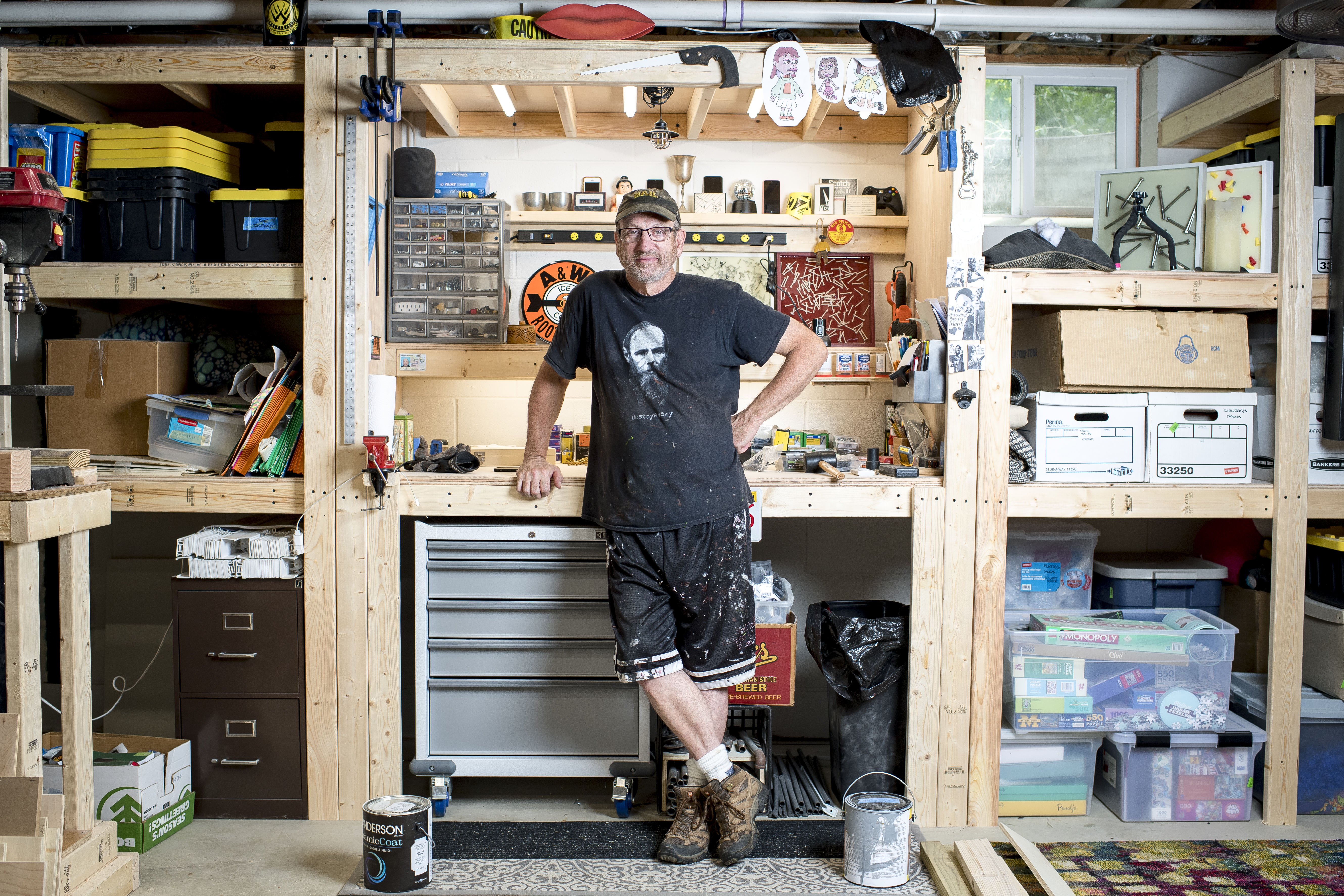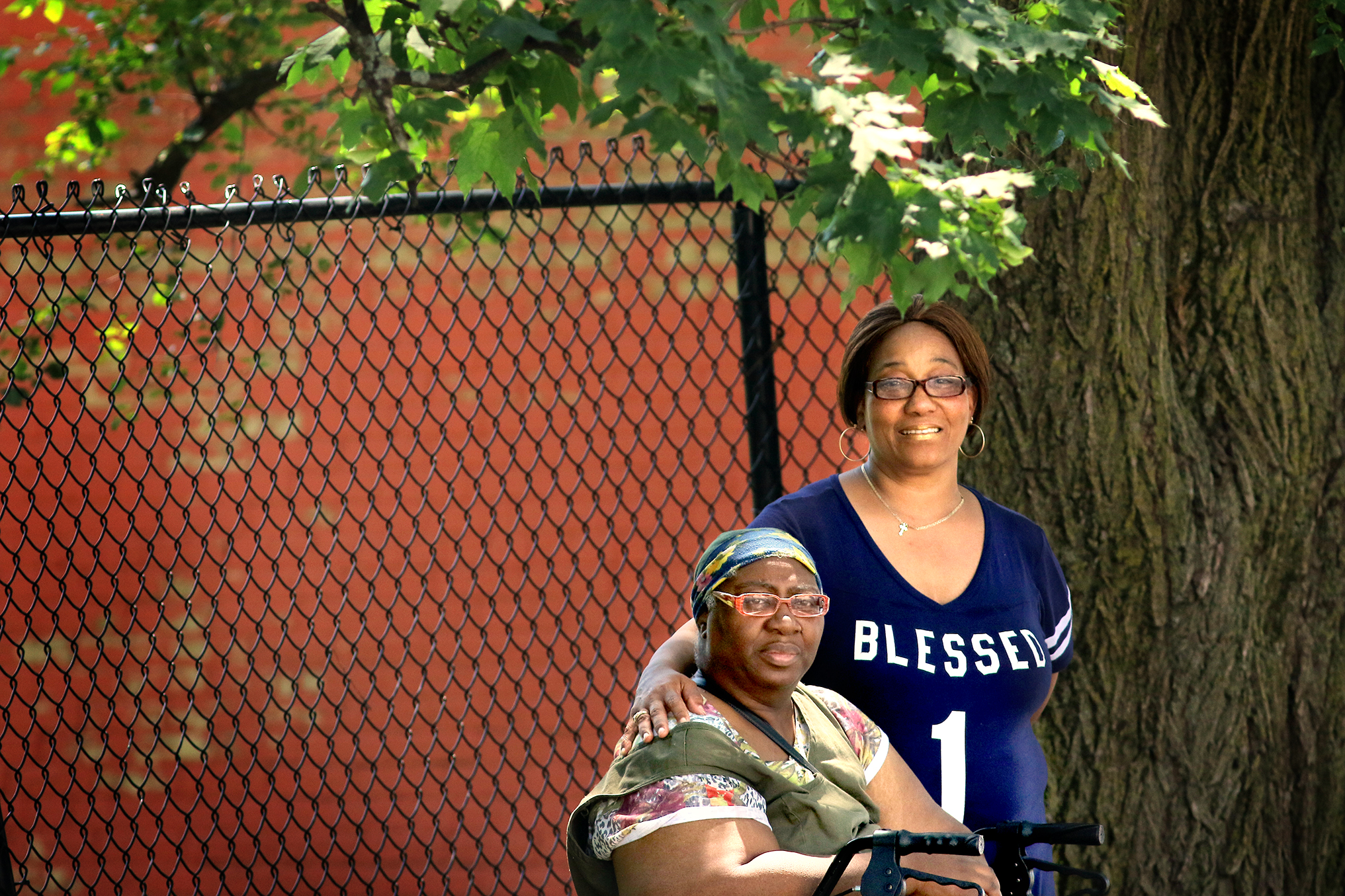Even many who once planned to keep working are feeling ready to move on — or they’re being forced to. “My body just got tired,” said Glenda Gaines, 62, who chose to retire and applied for disability benefits when COVID-19 shut down the neighborhood day care center she ran in Dorchester.
Advertisement
Most boomers, of course, aren’t rock stars or tech visionaries. Like Gaines, they chased their dreams in everyday arenas, punching clocks, buying homes, and raising families in a time of lengthening life spans and unparalleled opportunity. Now that graying army — of shopkeepers, tradespeople, managers, teachers, and laborers — is busy recalibrating its work and retirement trajectories.
Reverberations from the pandemic will be felt for years. But it’s already pushed to the fore an inevitable question: Is the long and winding road of America’s boomers coming to an end? And for the impatient younger cohorts waiting in the wings, a blunt corollary question follows: Isn’t it about time?
Advertisement
Some telltale markers are clear. During the pandemic, the number of boomers who reported they’d retired eclipsed for the first time the number working or looking for work, according to a Pew Research Center analysis of US labor survey data. The analysis showed less than 43 percent of the nation’s 69 million boomers remained in the labor force in early 2021 — a low point for a generation in which more folks worked past the age of 65 than ever before.
Boomers in stressful jobs, from nursing to teaching to policing, are calling it quits in higher numbers, buffeted not only by a health crisis of historic dimensions, but also by the political divisions and racial reckoning convulsing the society.
“People are saying, ‘I’ve had enough,’” said Mark Leahy, 64, director of the Massachusetts Chiefs of Police Association, who reported 98 of the state’s chiefs — mostly boomers — stepped down in the past 12 months, more than triple the number in comparable pre-pandemic periods. Cops feel pressure from a “COVID-19 wheel of wear and tear,” he said, along with “the vilification of police” after the killing of George Floyd.
“They’re saying, ‘I’ve put in my time, I’ve earned my retirement, and I want to leave,’” Leahy said.
For educators, more than a year of teaching while physically separate from their students has taken a toll. “Very quickly, we went to a remote situation, and no one was ready,” said John Schumacher, 65, a Hanover middle school teacher who opted to retire early. “That was the breaking point.”
Advertisement
The ‘big quit,’ and a reassessment
A slow-rolling exodus of boomers from the nation’s workforce has been underway for at least a decade — some have dubbed it “the big quit” — but the pandemic hastened that outflow in multiple ways: through layoffs, early retirement, and, for a growing number, a reassessment of life and legacy.
It’s a fraught passage for a generation that seemed to embrace the Bob Dylan anthem “Forever Young.” In the summer of their youth, boomers transformed the buttoned-down society of the Eisenhower era into one more creative and dynamic, if often fractious. But many have awakened to the reality that they are no longer young and nothing lasts forever.
“The pandemic made us all realize how fragile life is, how mortal we all are,” said Peter Slavin, 63, the president of Massachusetts General Hospital since 2003 who relinquished the post Sept. 7. “I think the pandemic stirred up that kind of thinking.”
There are also some bitter regrets: Idealistic boomers made strides in promoting women’s and gay rights. Many helped elect a Black president, himself a younger boomer promising hope and change. But they’re leaving some enormous messes — most glaringly a warming planet, vast wealth inequities, and persisting racial injustice — for those coming up behind them.
“We’ve made some progress, but on race and climate the generation has failed utterly,” said Len Fishman, 70, a former activist and health care leader who retired last month as head of a research institute at the University of Massachusetts Boston focusing on aging. “I’m excited about a younger generation stepping up to offer ideas that are different.”
Advertisement

Not that all boomers are ready to pass the torch. Thirteen of the 25 largest public companies in Massachusetts continue to be led by boomers. And the work-from-home routines embedded during the pandemic enabled a corps of knowledge workers nearing traditional retirement age to extend their careers.
At the same time, many older service employees — especially women, people of color, and those without college degrees — were idled in the lockdowns and hustled to find new jobs.
‘The pandemic made us all realize how fragile life is, how mortal we all are. ’
Peter Slavin
Indeed, a troubling wage and wealth gap within the boomer generation widened during the pandemic. Surging stock and home values ballooned the generation’s household wealth to $67.5 trillion last spring, according to Federal Reserve data, making it easier for those boomers who’d built up assets to retire early if they chose or keep working if they wanted. But the boomers’ wealth is unevenly distributed, and many have no choice but to continue at their jobs or to look for work.
“I didn’t work for a year,” said Mehidy Chafa, 59, who took unemployment and tapped his savings during the pandemic and only recently returned to his job serving banquet tables at Boston’s Omni Parker House. “I was just able to get by.”
The generation born between 1946 and 1964 has always been too large and varied — and stubbornly individualistic — to fit into a simple narrative. But consider these trends:
Advertisement
- COVID-19 delivered its heaviest blow to older Americans, including boomers. More than 250,000 people ages 50 to 74, the bulk of them boomers, died from the virus through Sept. 8, according to the Centers for Disease Control and Prevention. That represents over a third of all US coronavirus casualties, the highest toll of any generation except the over-75 contingent.
- Boomers are now racing toward retirement like never before. Pew’s analysis showed the number working in the first three months of this year dropped by 3.5 million from a year earlier. Now, for the first time, more boomers are retired than working — 30.3 million to 29.6 million.
- Meanwhile, younger generations are rising, in numbers, clout, and expectations. Millennials, born between 1981 and 1996, overtook boomers on the eve of the pandemic to become the largest generation. The boomer contingent, which peaked at 78.8 million in 1999, has sunk below 70 million. Millennials, mostly the children of boomers, number 72 million. With immigrants swelling their rolls, they’re projected to grow to nearly 75 million by 2033, a separate Pew study showed.
For some, boomers can’t exit the stage fast enough. The derisive Internet phrase “OK, boomer” reflects the frustration of younger colleagues toward complacent elders fumbling with new technology while clinging to higher rungs on the career ladder. There’s also a broader critique that the young are inheriting mounds of college debt and intractable social ills.
“There’s a real dissonance between the pride boomers hold for their cultural and social legacy and the tangible reality of the world my peers and I came into adulthood in,” said Jill Filipovic, 38, the millennial author of the 2020 book “OK Boomer, Let’s Talk: How My Generation Got Left Behind.”
A more skeptical and diverse younger generation is carrying new skills and sensibilities — and a more intense focus on flexibility, social media, and social justice — to spaces that, in many cases, continue to be controlled by boomers. “We want our workplaces to reflect our values,” Filipovic said. “We expect the culture to be open-minded, to be inclusive, to be fair.”
Some boomers see the younger folks’ eagerness to tackle daunting challenges as a hopeful sign for the future.
“The next generation and the succeeding generations have a different view of the world, and perhaps a greater sense of urgency than boomers,” said Lester Strong, 72, a former news anchor at Boston’s WHDH-TV who now devotes his time to racial equity projects, police reform, and mentoring young people in the Hudson Valley of New York state.
Yet for most boomers, changes brought on by COVID-19 feel less like a generational handoff than an upheaval in lives well planned. They’ve lost more contemporaries and parents to the disease than younger generations, and they’ve also lost more businesses, jobs, and savings that will be tough to recoup.
That’s left many reeling and worried about what the future holds. And though each of their stories is unique, the trial of the past 18 months has left almost all with a sense that their lives have changed profoundly and in unexpected ways.
Still hustling in a time of uncertainty
Mehidy [pronounced meh-dee] Chafa, the banquet server at the Omni Parker House, never considered the possibility he’d be out of work. An immigrant from Algeria, he was named employee of the year at the Boston hotel half a dozen times, and displays the plaques in the living room of his Quincy home.
But the awards didn’t protect him when the virus arrived and the hotel shut down in the second week of March last year. “They pretty much decided to furlough everyone,” Chafa said. “If there’s no functions, what are you going to do?” Now, as he tries to come to terms with what happened, he divides his life into two chapters: “Before COVID, and after COVID.”

Chafa’s experience mirrors that of millions of older workers in the pandemic. For the first time in a half century, those over 55 faced higher joblessness than those in mid-career, researchers at the New School in New York found. And immigrants were among the hardest hit. More than 4.5 million came to America in the two decades after World War II, bolstering the ranks of boomers as the US economy expanded. But many worked in the sectors most vulnerable to COVID-induced layoffs.
“The industries hit hardest by the pandemic were hospitality, retail, and travel, and the workers were less likely to have much retirement savings,” said Anqi Chen, a research economist at Boston College’s Center for Retirement Research.
Chafa had set up tables and served guests at weddings and corporate events in the hotel for 21 years. When things were busy, as they often were in the before times, he’d work from 5 a.m. to past midnight. He took pride in his work and made the kind of money that would be out of reach in his native country, but was just enough, with the help of his wife’s income, to raise two children in a modest home south of Boston.
At first he thought the virus scare would be short-lived. But as the weeks slipped by, and the world closed down, he spent most of his time cooking, cleaning, and washing dishes at home, while his wife Janina worked remotely upstairs at her information technology job for a health care company.
Chafa collected unemployment benefits. The couple stopped traveling and cut spending. They drew on savings to pay the mortgage and help their grown son and daughter with college tuition and loans. Chafa grew vegetables in his garden and exercised on a treadmill in his living room. Last fall, he lost his father, but was unable to return to North Africa for the burial.
And he waited, with as much patience as he could muster, to be called back to the Parker House. “You feel useless,” he said. “You start thinking, ’What happens if I don’t go back to work?’ I had a dream [that] I was cleaning out my locker.”

Then, in June, he got the call he’d been waiting for: Events were resuming at the downtown hotel and they needed him later in the week. He bought a new pair of shoes. He reported to work an hour early. It was good to be back in his element.
Since then, Chafa has worked about a dozen banquets at the Parker House, but there still aren’t as many functions as in the past. He’s also taken a side job to help his family climb out of this financial hole. Looking forward, he sees hustle and uncertainty far into the future. “It’s not the same now,” he conceded. “There’s no extra money to spend. I am not planning to retire.”
The job ends, the journey continues
Plenty of boomers continued working during the pandemic, but under conditions that made their jobs frustrating — and, in many cases, precipitated decisions to retire early.
John Schumacher, the Hanover music teacher, had the means and motivation to step aside after the virus severed in-person contact with his middle school students. Giving lessons online “was just a total comedown,” he said. “Teaching was all about the interaction. That’s where all the magic was.”
Schumacher is a classic boomer. Growing up, he campaigned for antiwar candidate Gene McCarthy and idolized rockers Jimi Hendrix and Todd Rundgren. He enrolled in Berklee College of Music in the 1970s, played drums, bass, and guitar in three bands, and was a fixture at the Boston club scene.
“I went to college expecting to be a rock star, and ended up being a teacher because it paid the bills,” said Schumacher. But over the course of teaching music at Hanover Middle School for 40 years, while also producing and directing school musicals, he came to delight in his job. “A lot of people are petrified by teens,” he said. “I loved every minute.”
During the pandemic, about 2.5 million Americans over the age of 55 have retired, roughly twice as many as in 2019, according to Oxford Economics. Those with pensions, such as teachers and other public employees, were better able to exit early. Retirements in the Massachusetts State Retirement System climbed to 3,520 in 2020, up 21 percent from a year earlier.
Schumacher was among those older workers who had no immediate plans to retire. But when it became clear that in-person teaching would no longer be possible in the school year that started last fall, he began reassessing his plans.

He and his wife, Martha Lowry, had talked over the years about eventually returning to Michigan where they both grew up. At outdoor dinners at a local pub, their talks grew more serious. Their two kids were grown, and Schumacher had worked enough years to qualify for a full pension. So in August 2020, he notified the school system that he was done.
On Dec. 1, the couple relocated to their home state, moving into a ranch house that came with two and a half acres of land on the edge of Ann Arbor. They closed on the sale of their Brookline condo in April, and Lowry, also 65, retired from her insurance job later that month. Both collect pensions and Social Security. Lowry planted a garden. Schumacher is working on home projects and hanging out with his old friends.
“We’re in a little bit of heaven now,” he said. “I’m playing on the softball team I played on 45 years ago.” He looks at the move less as an ending than another chapter in his boomer journey. “The journey takes you to different places,” he said.
The end of a small business dream
Ginnie and Frank Curcio were among the restless millions who left secure jobs to launch businesses, an entrepreneurial corps that refreshed American life in the 1970s and 1980s.
The Curcios’ dream was hatched at the kitchen table of their Newton home as their two boys watched “Dukes of Hazzard” on television in the other room. Ginnie, a social worker, and her husband, Frank, a Boston University professor whose passion was cooking, wanted to start an Italian restaurant.
Stellina’s opened in 1986 in neighboring Watertown, and became a go-to local dining spot for the next three and a half decades. Even after Frank died suddenly in 2016, the eatery continued under the guidance of Ginnie, who treated her staff and longtime customers like members of her family.
She was 72 when Frank died, and returning to work at Stellina got her back into the flow of life. The flow continued, as patrons celebrated parties, wedding rehearsals, christenings, and anniversaries with antipasti, risotto, and tiramisu, until the coronavirus forced her to shut her doors on March 14, 2020.
Boomers owned more than 40 percent of the nation’s small businesses and franchises, according to a 2020 survey by Guidant Financial and the Small Business Trends Alliance. Most were folks content to work for themselves. But longtime proprietors like Curcio — a boomer in spirit, though slightly older — faced a painful choice as the grueling pandemic wore on, and many decided to close up shop.
Nationwide, the owners of about 110,000 businesses serving food did exactly that, shutting their kitchens permanently in the first nine months of the lockdown, a late 2020 survey by the National Restaurant Association estimated.
Curcio initially thought Stellina might be a survivor. She was able to secure a federal loan under the Paycheck Protection Program, but the funds ran out by the summer. Then, she said, “The test was could I get along without the loan.”
Stellina reopened for takeout in mid-June and soon added outdoor dining, but coronavirus jitters kept many of the regulars away. It was soon plain that not enough money was coming in to cover expenses. “It wasn’t going to work,” she concluded.

Curcio dreaded telling her employees, but ultimately called a staff meeting to convey the news. “They all completely understood,” she said. “Nobody was surprised, nobody was mad.” Curcio closed the restaurant for good on Aug. 29, after 34 years, and is selling the building in Watertown Square.
Up at her current home in Gloucester, she’s been reading books and growing flowers and tomatoes. She’s getting together with old friends, most of whom are also retired now. She’s planning to travel to Italy. And she’d like to volunteer to help immigrants to the United States. “So many of our hard-working employees came from Latin American countries,” Curcio said.
While her entrepreneurial dream has ended, she looks back at it as her life’s adventure. “We were a team,” she said of Frank and herself. “Neither of us had any experience with a business. We just jumped in feet first and learned along the way.”
Curcio said she has no regrets — except for the event that triggered the closing of Stellina and her retirement, which was beyond her control. “I would have liked to make the decision myself and not have it made for me,” she said.
A second chance, in shorts and sandals
Though the pandemic cut short the working lives of countless contemporaries, a class of mainly white-collar boomers saw their careers extended thanks to the virus — and remote work.
For senior business analyst John Hine, 68, the work-from-home model that took hold during the pandemic was a chance to stay at a job he’d liked and mastered on his own terms.
Hine had been eyeing retirement. He’d worked at Bay State Health for two decades, helping to outfit its network of community hospitals and doctors practices with cable and technology linking them to the mother ship in Springfield.
But for several years, Hine said, “I felt like I was in a rush all the time.” He and his managers worked out a phased retirement plan that let him downshift from full time to 24 hours a week. Yet the workplace culture required him to be in the office, so he kept commuting each day from his South Hadley home.
Then, as COVID-19 began spreading, Bay State ordered all employees who weren’t patient-facing to work from home. The projects he supervised at hospital facilities were put on hold, and Hine’s commute became a stroll from his kitchen to an in-law apartment in a converted garage, often in shorts and sandals and a T-shirt he got at a local music festival.
“I haven’t had to wear a collar very often,” he said.
What he hadn’t anticipated was how his technology savvy, and that of his colleagues, would enable them to work seamlessly via Zoom and Webex conferencing software. When their projects resumed, they were able to manage them without going into the office. There was no shortage of work, and he could do it 10 to 15 hours a week from his home.
At the height of the pandemic, more than four in 10 employees worked full time from home, Stanford economics professor Nicholas Bloom estimated. (They included Hine’s wife, Karen, 65, whom he’d meet in the kitchen for a quick lunch.) Some have since returned to the office or adopted a hybrid model of working at home and the office on different days.
The pandemic forced employers across the nation to speed up a transition to remote work that, in many cases, had already begun. It’s not clear how many employees, like Hines, have been able to take advantage of that transition to postpone retirement, but arrangements like his are no longer uncommon among information workers whose skills are in demand.

Hine has set himself up at a wooden desk, with two large-screen monitors and a dedicated work phone. He can look through sliding glass doors at his backyard pool. He continues mentoring younger colleagues, and accumulating rather than drawing down savings while also collecting Social Security.
In his off hours, Hine keeps himself busy as South Hadley’s town meeting moderator, and also sits on its municipal light board. He works out at his gym three times a week, does his yoga, and serves on the board of a local food pantry.
He’s aware that he’s past what was widely regarded as the “retirement age” in his parents’ era, but the concept strikes him as antiquated and irrelevant to his boomer generation. “I consider the term ‘being retired’ meaningless,” he said.
Life, and meaning, beyond work
Yet the changing of the guard is proceeding apace.
Eighteen months after COVID-19 arrived in the United States, boomers are leaving work at a faster clip than before. Though the road out can be bumpy, the questions of when and whether to step aside — and how to afford to — are now inescapable.
But there’s more to the story. Those who were sidelined by the virus, or chose to retire, haven’t stopped contributing. Older Americans, mostly boomers, have high rates of volunteering, according to several studies. Those rates dipped with the pandemic lockdowns, but as the nation recovers and more workers leave the labor force, they are likely to rebound.
One of those who’s left the paid labor force but stepped up her volunteering is Glenda Gaines, a former pharmacist who raised three children in Dorchester. Gaines said she was called by her religious faith to lend a hand where it’s needed.
Gaines worked behind the pharmacy counter at CVS for decades. She was also a cook and took care of children. Life hasn’t been easy; over the years, her husband, mother, and aunt died. In recent years, as the osteoarthritis in her back worsened, she continued to run a small day care out of her home while picking up retail jobs through a temp agency.
The coronavirus forced Gaines to shut the day care, and her temp work dried up. “I had to dip into what I’d saved to pay the mortgage and the gas bills,” she said. Ultimately, she applied for, and received, Social Security disability benefits.
But even with pain, she had no intention of sitting idle. Gaines is a Pentecostal Christian active in the Holy Tabernacle Church. She also sings Hebrew hymns she learned from Jewish friends in her youth. As the pandemic dragged on, she saw how it was straining her Dorchester and Roxbury neighbors, so she rolled up her sleeves at churches and community groups.

Gaines now spends hours at food pantries. She organizes support for child care and affordable housing at New England United for Justice, an advocacy group, and the Home Grown Child Care collaborative. And joining with her friend Orlena McQueen she’s helping to assemble a digital yellow pages to connect neighborhood residents to available resources.
“We want to make sure no one is left behind,” Gaines said. “We want to make sure that people have food, can pay their rents, don’t have their lights turned off. Even in the midst of my own ailment and issues, I’m still trying to help others.”
Stories such as Gaines’s suggest many boomers have at least one act left: reframing retirement as a mission, applying skills learned in their working lives to help younger people and those less fortunate. As they process their own experiences during the pandemic, boomers are also reexamining what’s important.
“People are rethinking their purpose,” said Marc Freedman, the president of Encore, a national organization that offers older Americans intergenerational mentoring opportunities. “We’re seeing different directions for how they spend their time.”
Gaines, for her part, has found her post-pandemic boomer niche. She likens herself to a community “point guard,” the player on a basketball team who dribbles the ball up the court, spots holes in the defense, and dishes off assists.
She has no need to run the offense, but wants to keep making a difference. “I just keep my hands busy,” Gaines said. “The reward is seeing people’s needs being met.”
The torch passes once again
President John F. Kennedy declared in his 1961 inaugural address that “the torch has been passed to a new generation of Americans.”
Sixty years later, many of the boomers inspired by JFK in their youth are passing the torch again.
The boomers’ dominion remains strongest at the top of the heap — in the halls of Congress, the corner offices of corporate America, the institutions of learning and healing. But even there, the pandemic era is bringing change.
Several boomer presidents of Harvard teaching hospitals have recently turned over the reins, and they have plenty of company among chiefs of universities, businesses, and police departments.
Helen Drinan, 74, remembers her parents keeping her up late as a child to watch Kennedy’s election on television. She later joined the Peace Corps that JFK established, working with sick children in the Philippines. Drinan retired in June 2020 as president of Simmons University in Boston.
Drinan championed diversity and inclusion during her 12-year tenure atop Simmons. And she’s proud that her successor, Lynn Perry Wooten, 53, the school’s first Black president, is a younger PhD and organizational development expert who aspires to groom her students to be “agents of change.”
In many ways, the boomer passing the baton reflects the natural order of things as the older generation yields to the younger. But, for Drinan, it’s idealistic as well, a chance for new energy and a new perspective to propel the university forward.
“She is an incredible role model for the students,” Drinan said. Speaking for many eager to see the next generation flourish, she said, “Could I have asked for a better successor?”
This story is the first in an occasional series on the pandemic’s impact on baby boomers.
Robert Weisman can be reached at robert.weisman@globe.com. Follow him on Twitter @GlobeRobW.








